In December, Secretary of State Pompeo said Russia had 60 days to come back into compliance with the Intermediate-range Nuclear Forces (INF) Treaty. Otherwise, the United States would suspend its treaty obligations.
The clock runs out on February 2. Unfortunately, U.S. and Russian officials, already anticipating the treaty’s demise, have turned to finger-pointing…and Washington is losing the blame game.
Charges of Treaty Violations
In 2014, the United States charged Russia with violating the INF Treaty by testing a ground-launched cruise missile to intermediate range (500-5,500 kilometers). In 2017, Washington said Russia had begun to deploy the offending missile, later identified by the Russian designator 9M729.
U.S. officials for several years provided little public information to substantiate their charge. However, one could still believe that Russia had violated the treaty—or at least that the U.S. government believed that Russia had violated the treaty. When the Obama administration declared Russia in violation in 2014, it handed its Republican critics a large chunk of red meat, and they only too happily mocked President Obama as naïve in his desire to reduce nuclear arms. Had there been any ambiguity in the U.S. evidence, the Obama administration surely would not have exposed itself to that.
Moscow nonetheless has denied violating the treaty and charges Washington with three violations. Two charges don’t bear scrutiny, and Russian officials themselves seem to recite them merely for form’s sake, but the charge regarding the Mk-41 launcher for missile interceptors at the Aegis Ashore facility in Romania has some basis. Mk-41 launchers on U.S. warships can hold a variety of missiles, including cruise missiles.
The U.S. military does not have cruise missiles secreted in Romania, but the Russian concern is understandable. Were the positions reversed, Washington might well raise the point.
U.S. and Russian officials met in Geneva on January 15 to discuss the INF Treaty and compliance issues. The Russians reportedly offered some kind of exhibition of the 9M729 missile, but U.S. officials said it did not satisfy their concerns. It does not appear the American side tried to improve the terms of the Russian offer but instead sought total surrender by the Russian side, which was not going to happen.
Afterwards, American officials told the press that the Russian ideas did not break new ground. Russian officials called the U.S. approach “uncompromising.”
Who killed the treaty?
The blame game is now on. Perhaps due to the partial government shutdown in Washington, Moscow is winning.
Russian officials have actively made their case since President Trump in October said the United States would leave the treaty. On January 23, the Russians held a briefing outside of Moscow for journalists and foreign military attachés to rehash their charges of U.S. treaty violations and explain their claim that the 9M729 was treaty-compliant. The briefing compared the dimensions of the 9M729 to the 9M728, a somewhat shorter missile with a range of less than 500 kilometers (thus treaty-compliant), and claimed the former had the same engine and fuel capacity but a larger warhead and thus a shorter range. The briefing revealed some previously undisclosed details about the 9M729, which may or may not be true.
Russian military officers then exhibited the 9M729 and 9M728 missiles. Well, no. They exhibited canisters labeled 9M729 and 9M728. Whether the canisters actually contained missiles is anyone’s guess.
The problem for Washington, however, is that the Russian narrative includes far more detail and specifics than the U.S. presentation.
The problem for Washington, however, is that the Russian narrative includes far more detail and specifics than the U.S. presentation. American officials handicapped themselves for years by refusing to reveal the basis for their charge about the 9M729, citing the need to protect sources and methods. Losing the public relations battle could have diplomatic consequences as Washington seeks to rally allies to its case.
It was only in December that Director of National Intelligence Dan Coats explained that the Russian military had tested the 9M729 from a fixed launcher to a range greater than 500 kilometers (that would be okay, if the missile were a sea-launched cruise missile). The Russians then tested the 9M729 from a mobile ground launcher to a range of less than 500 kilometers, apparently hoping the U.S. intelligence community would not make the connection between the two.
Coats’s briefing helped, but Washington continues to play catch up in the blame game. Since it is the United States that has said it will cease observing the treaty’s terms, it needs to do better to fix responsibility for the treaty’s end on Moscow.
Save the treaty?
In this regard, rejecting the Russian January 15 offer of an exhibition was a mistake. U.S. officials instead should have pocketed the proposal and defined terms for a meaningful exhibition and technical briefing. That would have meant looking not at canisters but at the missile and inside the missile to see things such as the engine and fuel tank. Procedures would have been needed to ensure a real 9M729 was exhibited. This would have taken negotiation, but smart technical experts might have worked out something.
In order to get the Russians to go that far, Washington would have had to be prepared to address Russian concerns about the Mk-41 launcher—perhaps an exhibition and technical briefing? The U.S. side was not ready for that.
That’s unfortunate. Taking up the Russian offer and then pressing to make the exhibit meaningful, combined with a readiness to exhibit the Mk-41, would have positioned Washington to show that it was making every effort to find a solution and that Russia, not the United States, bears responsibility for the end of the INF Treaty. And who knows? It would have created a small chance of finding a way to resolve the sides’ compliance concerns and save the treaty.
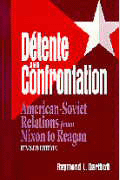
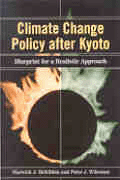
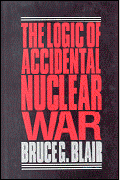
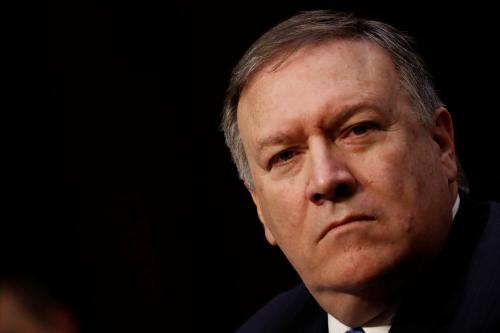
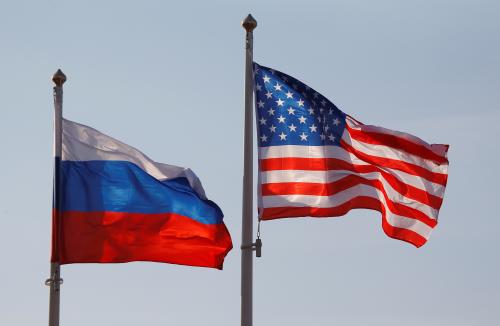
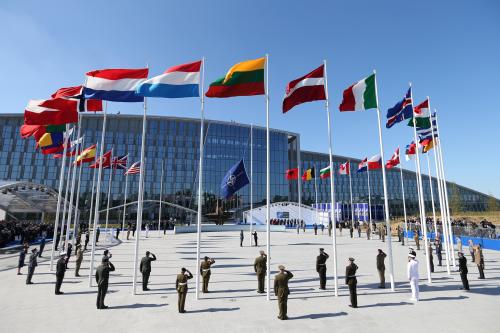



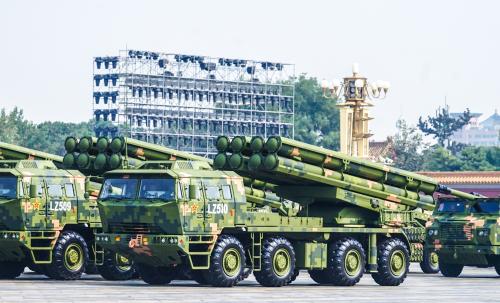
Commentary
The blame game begins over the INF Treaty’s demise, and Washington is losing
January 25, 2019